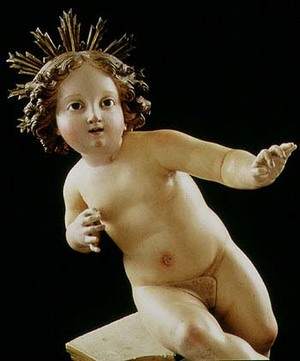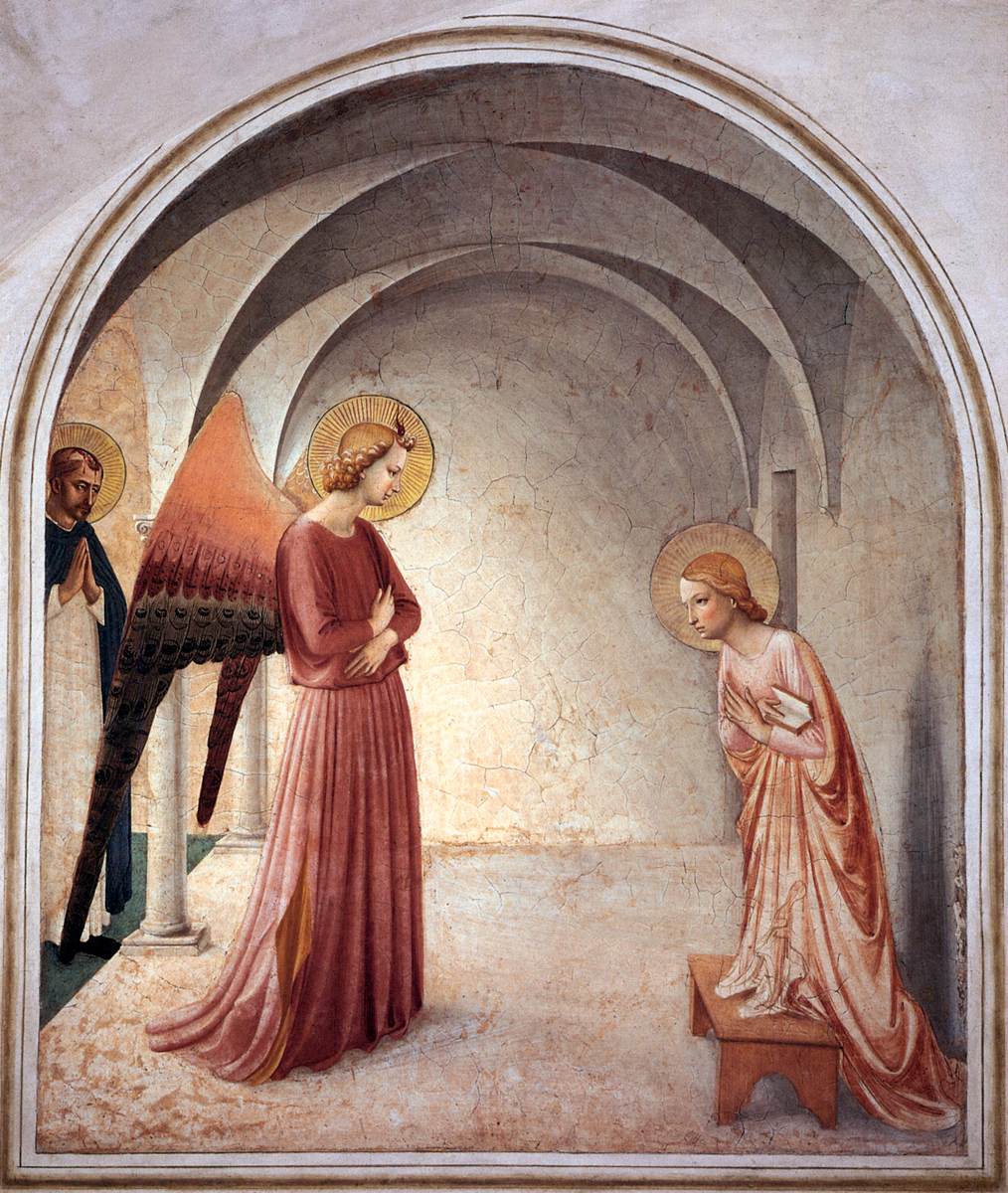The Heart of God Beating in the Breast of a Little Child

Almighty and ever-living God,
seeing that the birth of Thy Son according to the flesh
is drawing near,
we beseech Thee that Thy Word
may grant mercy to us, Thy unworthy servants,
for He deigned to become flesh of the Virgin Mary
and to dwell among us.
The Realism of the Liturgy
You may have noticed that the Collects of Advent, as well as the Prayers Over the Offerings and the Postcommunions, make frequent mention of sin. Like heavy chains bound to our feet, sin impedes our going forward to meet the Lord. This is the realism of the liturgy. The Church never pretends that we are not engaged at every moment in spiritual combat. The joy of Advent is not about denying the things that keep us from God; it is the acknowledgement of those things and, then, their surrender to the all-powerful mercy of the Word made flesh.
Saved for Joy
Today’s Collect looks to tomorrow and the next day.
Almighty and ever-living God,
seeing that the birth of Thy Son according to the flesh is drawing near. . . .
The words of this first phrase of the Collect are those that we will hear solemnly proclaimed tomorrow in the Martyrology: Nativitas Domini nostri Iesu Christi secundum carnem, “the birth of our Lord Jesus Christ according to the flesh.” It is the custom in some Benedictine monasteries for the Cantor to don a rose-coloured cope to sing the Announcement of Christmas, the dawn of our salvation.
Our liberation from sin is a liberation for joy. Christ comes not only to save us from sin, but also to save us for joy. “I will not leave you desolate,” says the Lord, “I will come to you” (Jn 14:18); and again, “Ask and you will receive, that your joy may be full” (Jn 16:24).
The Word Became Flesh
Here is the petition of today’s Collect:
We beseech Thee that Thy Word may grant mercy to us, Thy unworthy servants,
for He deigned to become flesh of the Virgin Mary and to dwell among us.
The Church speaks of the Word; she uses the language of the sublime Prologue of Saint John, the very Gospel that we will hear at the Mass of Christmas Day. “In the beginning was the Word, and the Word was toward God, and the Word was God” (Jn 1:1). “And the Word became flesh and dwelt among us, full of grace and truth” (Jn 1:14).
The Name of Mary
The Collect makes us refer to ourselves as unworthy servants and, in the same breath, evokes the Virgin Mary, the Immaculate Handmaid of the Lord. We unworthy servants find in the Virgin Mother “our tainted nature’s solitary boast . . . brighter than eastern skies at daybreak strewn” (Wordsworth). To pronounce the name of Mary, even as we recall our sinfulness, opens the door to hope.
Mercy
The petition of the prayer could not be simpler:
We beseech Thee that Thy Word may grant mercy to us. . .
Misericordiam praestet Verbum. We ask that the Word take to His Heart all our misery. At Second Vespers of Christmas we will sing the De Profundis, Psalm 129, with an antiphon of inexpressible sweetness: “With the Lord is mercy and with Him copious redemption” (Ps 129:7). Apud Dominum misericordia! Misericordia, mercy, is misery taken to His Heart.
The Human Heart of God
The Heart of the Word is the Heart of God-With-Us, Emmanuel. The human Heart of God comes to be opened. It is not yet the hour of the soldier’s lance, but it is the hour of the Heart of God beating in the breast of a little Child. Whatever sin, whatever misery you have, hold on to it no longer. Give it to the Word made flesh. He comes to take it all away.


I’m reminded here of something Pope Benedict wrote in The Spirit of Liturgy:
Merry Christmas, Father Kirby. Thank you for the beautiful meditations for this Advent.